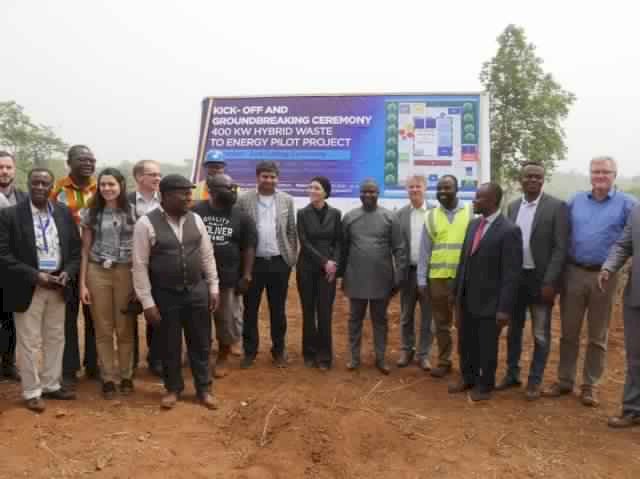Ashanti Region gets hybrid waste-to-energy project to improve sanitation

A ground-breaking 400kW hybrid waste-to-energy pilot project is being undertaken at Gyankobaa in Ashanti Region.It is meant to improve sanitation by converting ever-increasing municipal solid waste into energy for productive uses and contribute to sustainable industrial development.
The project will also install a novel hybrid waste to an energy treatment facility in Ghana that combines solar PV, biogas and pyrolysis technologies to treat and generate power.

The project will also create an opportunity for German Small Medium Enterprises to take advantage and extend its products and services in waste to energy plants to Ghana.
The Federal Ministry of Education and Research of Germany (BMBF) in collaboration with the Ministry of Environment, Science, Technology and Innovation (MESTI) of Ghana through the West African Science Service Centre on Climate Change and Adapted Land Use (WASCAL) in Accra, conducted feasibility studies on renewable energy resources to examine Bioenergy production and utilisation in Ghana (BioGRAG) project.
The studies and scope report crystallised into one project with the common objective of finding appropriate treatments pathway for municipal solid waste generated and develop concepts for segregation and conversion of various fractions into energy by using biogas, pyrolysis and solar PV plants.
A representative from the German Embassy who spoke on behalf of the Ambassador, Gudrun Haider says, “The project also seeks to create business models to successfully replicate and propagate 10 different regions of the country Ghana.”

Mrs Haider says it will also create an opportunity for German Small Medium Enterprises to take advantage and extend their products and services in the area of waste to energy plants to Ghana.
The University of Rostock in Germany and West African Science Service Centre on Climate Change and Adapted Land Use would see to the completion of the 400kW hybrid waste in the country.
Dr. Habil Narra from the institution says there would be Transfer proven waste treatment technologies in use in Germany to Ghana and capacity building of local experts to design, construct and maintain a hybrid waste to energy facility.


He indicates the project’s ability to contribute to Ghana’s climate change mitigation strategy and the inclusion of renewable energy in Ghana’s electricity production mix.
Minister for Environment, Science, Technology and Innovation, Prof Kwabena Frimpong-Boateng, lauded the initiative as part of measures to address environmental issues.

Building long term collaboration between the public and private sectors in Ghana will afford the opportunity to organise workshops to enhance knowledge exchange.
In 2019, the German government signed a 5.8 million euro contract with four institutions in Germany and one from Ghana comprising 3 academic institutions, one research and development institution and a medium scale industry to design and construct the 400kW hybrid waste-to-energy power plant to treat municipal solid waste in Ghana.
The project, which will be completed in a 48-month period to ensure the conversion of waste to energy, commences in Kumasi this year and will later be extended to other parts of the country.







